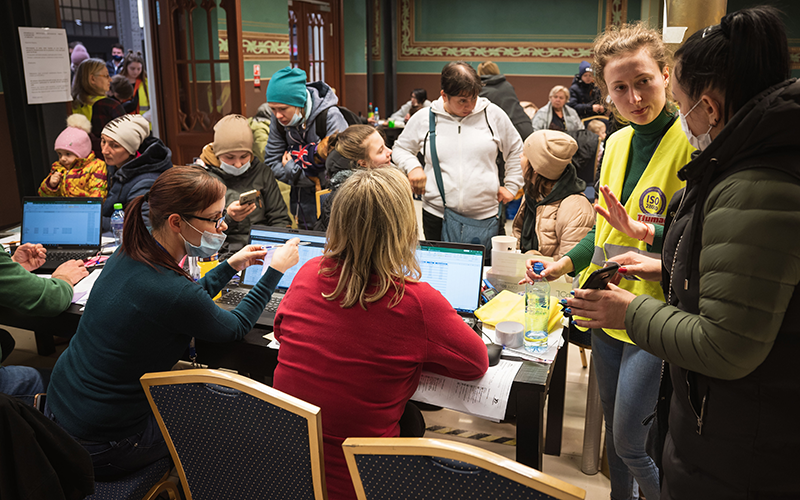Europe feels strain from Ukraine-Russia conflict as refugee numbers soar

As the number of Ukrainians fleeing the country reaches more than 2.5m, public services in European countries are starting to feel the strain.
A webinar last Friday [11 March] hosted by Dragonfly, a geopolitical and security intelligence service for the world’s leading companies and organisations, said some visa centres are struggling to cope with the influx.
Although there was a certain amount of planning before the Russian invasion of Ukraine, supported by the UN, Dragonfly analysts highlighted the fact that Poland, for example, wasn’t expecting such high numbers – opening its doors to around 1.5m refugees so far. Future projections in the coming weeks or months predict numbers could reach between 4m-6.7m.
As for the continuation of energy supplies – for businesses and supporting the new population of refugees – the war has not yet affected gas reserves in Europe. Russia could take the decision to modulate gas flows into Europe, with the aim of disrupting the European alliance. As Russia is export-reliant on its energy, it is unlikely it would cut supplies entirely. However, as always with President Putin, he always has a trump card, the analysts said, so don’t rule anything out.
As for Russia’s military progress, the assessment is that although the advance is a lot slower than expected, due to desertions and poor morale among its troops on the ground, missile strikes are on the increase and there are signs the advance is pushing westward. US sources predicted that Kyiv would be taken over the weekend, but this did not happen.
And what about the effect of the sanctions on Russia and its population? So far, these haven’t compelled a change of policy or forced Putin to change his mind. The slow progress of the ground operation in Ukraine has exposed a few fault lines in the Kremlin but it’s not regime threatening at the moment.
Henry Wilkinson, chief intelligence officer at Dragonfly, stated last week: “In recent days we have seen the Kremlin enact sweeping measures to monopolise information at an aggressive scale that we have not seen before. Having lost the initiative in the war, these measures leave little doubt that President Putin recognises that he is also at risk of losing control of the narrative, and with it his broader control of Russian society.”
He continued: “In the space of less than a week most Russians’ access to independent information and opposition opinion has been completely negated. And with it, the ability of the outside world to gauge authentic Russian views on the conflict and on Putin has sharply diminished at a time when the prospects of instability in Russia is the highest it’s been since Putin came to power.
“With Putin, it is clear that he is now facing acute economic, military and societal pressures to a degree that he had probably not anticipated. So far the measures Putin has taken to protect the regime are holding strong but should such cracks emerge things may move quickly. The embattled military and its apparent unwillingness to carry out Putin’s orders in Ukraine may be an institution to keep a close eye on.”
Dragonfly analysts reminded the webinar audience that the failure by the world’s politicians and commentators was to misunderstand Putin. Any outlier situation, including a spill over beyond Ukraine, was highly unlikely, but as ever with Putin, never say never. Always use your imagination, analysts cautioned.
• Comment below on this story. Or let us know what you think by emailing us at [email protected] or tweet us to tell us your thoughts or share this story with a friend.
